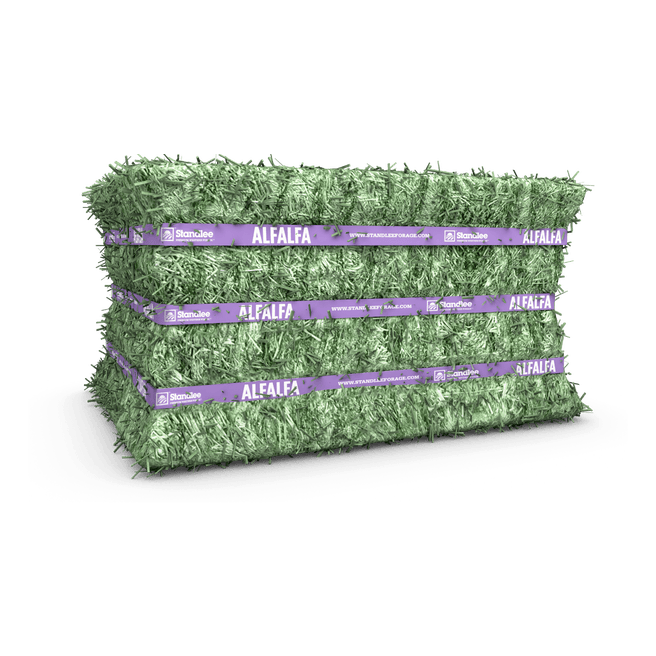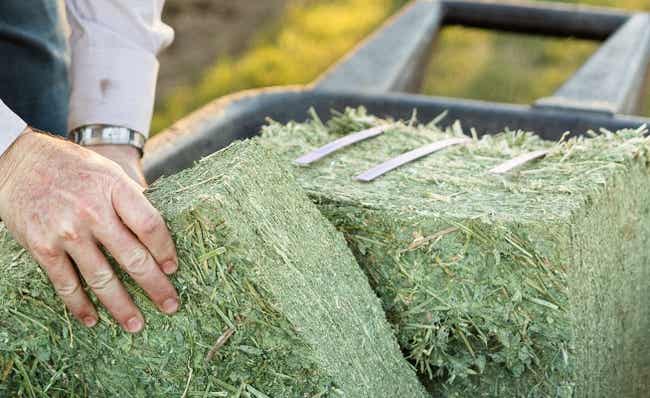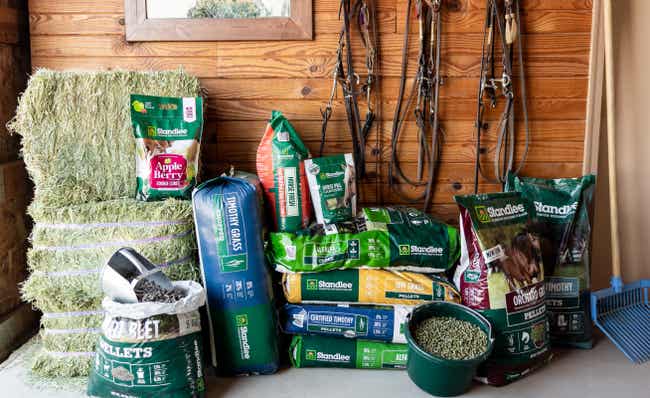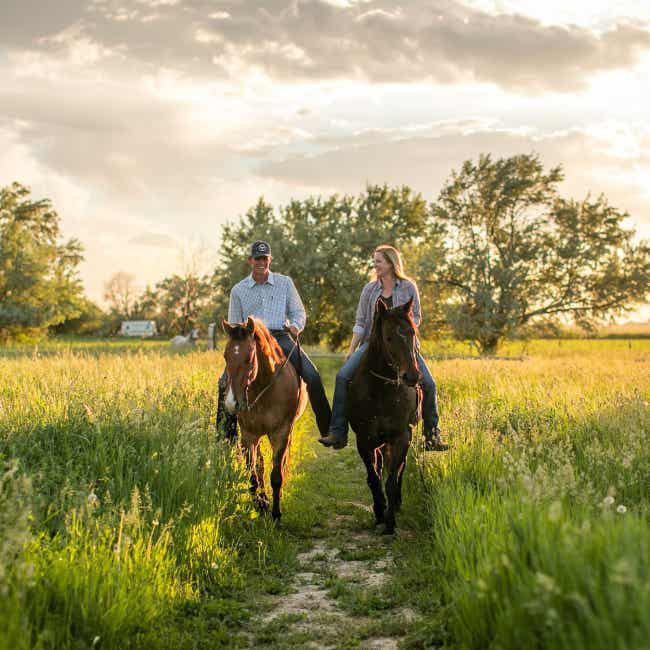


NET WT. 50 lbs (22.68 kg)
Standlee Premium Western Forage Alfalfa Compressed Bales are made from compressed high-quality sun-cured forage and shrink-wrapped, making them easier to handle and store. Standlee Alfalfa hay bales are low in sugar, moderately high in protein, high in calories and digestible fiber to promote hind gut health.
Find a store near you, or find other online vendors that carry Standlee where you can buy our products online.
FIND A LOCATIONStandlee Premium Western Forage Alfalfa Compressed Bales for horses and livestock can be an excellent source of calories for those who need help in gaining weight, or whose exercise demands require additional energy sources. Alfalfa hay offers an excellent source of protein, vitamin A, and calcium levels that can reduce the risk of stomach ulcers.
Performance Friendly
Hind Gut Health
High Digestable Energy

Growing (rapid growth) and underweight horses, horses with sensitivity to carbohydrates, horses with gastric ulcers and late pregnancy and lactating mares.
Weigh the amount of forage provided to each horse to ensure you are feeding the proper amount. This is especially important with baled and compressed forage since similar volumes of forage (a flake for example) vary in weight.
Cut the bands on compressed bales 8 to 10 hours before feeding to allow the bale to expand to avoid overfeeding.
Gradually replace existing hay with Standlee forage over a 7–10-day period. Replace existing hay on a 1 to 1 basis with Standlee forage.
NEVER FEED MOLDY OR INSECT INFESTED FORAGE TO HORSES.
ALWAYS PROVIDE FREE ACCESS TO FRESH, CLEAN WATER.
| Animal | Max Feeding Rate |
|---|---|
| Cattle | Max 3% |
| Donkey | Max 1.5% |
| Goat | Max 4% |
| Llama | Max 2% |
| Nutrient | Amount | Min/Max/Ave |
|---|---|---|
| Protein | 16% | Min |
| Fiber | 30% | Max |
| Fat | 1.5% | Min |
Naturally Sun-Cured Premium Western Alfalfa Forage
Forage is a natural agriculture product. Despite the use of modern processing equipment, it is not always possible to remove all foreign materials. Sort and remove foreign materials before feeding.
To maintain product quality and ensure safety, store product in a covered, cool, and well-ventilated environment out of the effects of the weather.
DISCARD ANY SOILED OR WET FORAGE IMMEDIATELY.


The natural feeding habit of the horse is to eat small amounts of roughages, often. Domestication has changed this. Modern management practices incorporate stabling, increased grain-based concentrate (higher in energy and lower in fiber than forages and hay) consumption, meal feeding and limited access to pasture. This has led to numerous problems by undermining the horses’ digestive capabilities. One of the most common disorders in horses today is gastric ulcers.
Learn MoreFind out why our customers keep coming back!